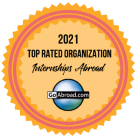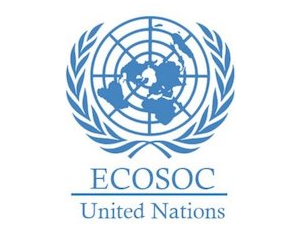Truth in the Spoof: Medical Voluntourism in The Onion
Truth in the Spoof: An expose of voluntourism in The Onion.
By: Aditi Joshi, MD
Newsflash! This week’s headlines report a new humanitarian organization ‘Doctors Without Licenses’ will start providing substandard care by putting together a group of “decertified physicians, pre-medical undergraduates, and ‘people just interested in the human body’.” The organization states it will be sending their staff to conflict zones and underserved areas to incorrectly provide medical care.

This news was reported in The Onion, a satirical weekly publication, so it is, of course, facetious. The sad truth is that it refers to a very real phenomenon.
Voluntourism and Medical Voluntourism – Repercussions
Searching ‘voluntourism’ on Google, one finds a number of hits for organizations that set up volunteer opportunities for well-meaning individuals to work in underserved communities. Medical voluntourism refers to doing medical care within these communities; these volunteers can be physicians, nurses, residents, medical students and a growing number of organizations offer hands-on opportunities for pre-medical students, as well. More and more research as well as anecdotal reports state that these short term volunteer trips do more harm than good to the local community. (If you’re interested in a great contrast between voluntourism and global health—this article is a must read. The volunteers may be providing direct patient care, giving medications, and doing procedures. In cases where the volunteer has no formal training, and would not be allowed to do the same in their home countries, this type of care is unethical whether or not the results are disastrous. Even for those who are trained and skilled, the lack of knowledge of local infrastructure, drug formularies, culture, language and historical frameworks can actually lead ‘good’ actions to having negative consequences.
Solutions and Social Responsibility
Proposed solutions vary as the scope of the problem is large and not fully realized. However, organizations such as Child Family Health International – CFHI, try to decrease harm by giving students the opportunity to immerse within the culture, focus on broad global health competencies, observe native health care providers who are dedicated to their communities long-term health. This prevents the student from being a short-term ‘band-aid’ health worker or trying to get patient care experience that they are not licensed to undertake. The students are able to understand health concerns in other countries while minimizing possible harmful outcomes.
Voluntourism is most likely here to stay, however the importance of finding ways to reduce harm while giving the local community the help it requires is an ongoing challenge.
Thanks to our guest blogger, Aditi Joshi MD, ER Physician and Former President IFMSA-USA for authoring this post.
Search here anything
Categories
- Academic Partnerships (4)
- CFHI Model (28)
- Cultural Humility (46)
- Ethics (44)
- Gender Equality (1)
- Global Health (68)
- Global Health Education (89)
- Global Health Elective (33)
- Human Rights (2)
- Local Experts (51)
- Medical Electives (41)
- Promotional Works (1)
- Public Health (17)
- Rotations (29)
- Student Spotlight (8)
- Study Abroad (10)
- Uncategorized (35)
- Volunteering Internationally (50)
Tags
Categories
- Academic Partnerships (4)
- CFHI Model (28)
- Cultural Humility (46)
- Ethics (44)
- Gender Equality (1)
- Global Health (68)
- Global Health Education (89)
- Global Health Elective (33)
- Human Rights (2)
- Local Experts (51)
- Medical Electives (41)
- Promotional Works (1)
- Public Health (17)
- Rotations (29)
- Student Spotlight (8)
- Study Abroad (10)
- Uncategorized (35)
- Volunteering Internationally (50)





the 2 organizations with whom I “toured”: Health Volunteers Overseas and a surgical cleft palate org based in California, years ago, insisted on active privileges at a US hospital, (requires license in US) Advanced Life Support, and other current credentials, and took mainly faculty, not medical students. On the other hand, the state medical societies in Brazil insisted that if foreigner asks to participate in that country, it be for something not offered by the local physicians (for example a pediatric surgeon from US Med who supervised fellows showed local pediatric surgeons
scrubbing in how repair to congenital genital malformations: hypospadias techniques and extrophy repair) (i.e. not to compete with national jobs), or to just lecture and help translate, not “lay on hands”. This was by personal invitation from a medical school or center. We had to register with the police on arrival, and with US Embassy. We attended the local Medical Society of host state, and paid visits of respect, brought textbooks, slides, infant endotracheal tubes, for their own use on our departure. Postoperative followup continuity of care was our concern. There is also media concern that foreign scientists are “stealing herbal secrets” from the Amazon natives, or that health is a “cover” for forms of spying , drug trade, natural resources, fearing commercial or governmental exploitation. Probably from actual past experiences.
Comments are closed.